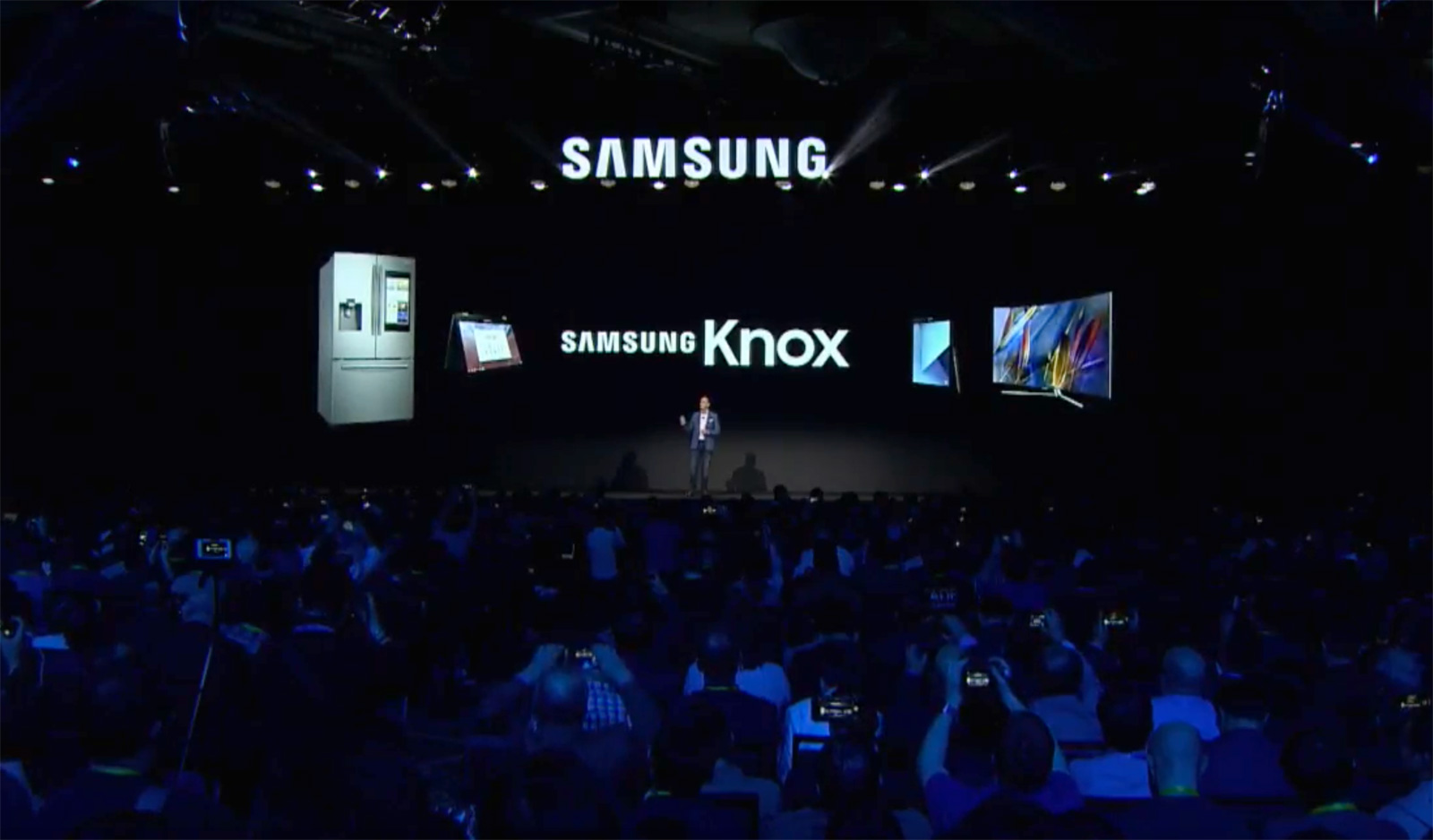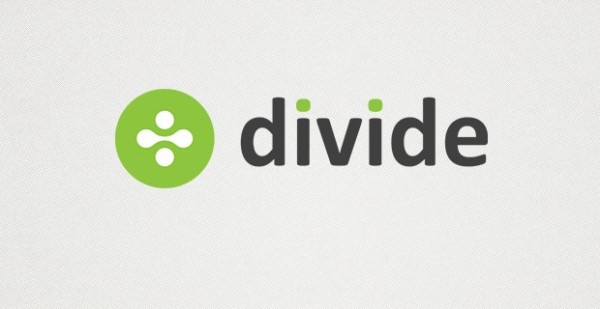Tag Archives: knox
Samsung’s Bixby leader leaves for Google
 Samsung's ambitions in services just took a bit of a blow. ZDNet has learned that Samsung's software research CTO Injong Rhee has left the company to become an "Enterpreneur in Residence" at Google. The 7-year veteran was important to the development...
Samsung's ambitions in services just took a bit of a blow. ZDNet has learned that Samsung's software research CTO Injong Rhee has left the company to become an "Enterpreneur in Residence" at Google. The 7-year veteran was important to the development...
Samsung brings Knox security to smart fridges and TVs
 Samsung's Knox security is no longer limited to running on phones and tablets. The tech firm has announced that it's integrating Knox across its connected devices, including TVs, appliances and even digital signs. As on mobile gear, it combines hardw...
Samsung's Knox security is no longer limited to running on phones and tablets. The tech firm has announced that it's integrating Knox across its connected devices, including TVs, appliances and even digital signs. As on mobile gear, it combines hardw...
Twitter’s Head of Asia-Pacific Aliza Knox Quits
Samsung Connect Auto brings LTE data to your car
 You didn't think Samsung would stay out of the connected car race, did you? Sure enough, the Korean electronics giant has unveiled its own take on smarter vehicle tech in the form of Connect Auto. The Tizen-powered (and Knox-secured) dongle plugs i...
You didn't think Samsung would stay out of the connected car race, did you? Sure enough, the Korean electronics giant has unveiled its own take on smarter vehicle tech in the form of Connect Auto. The Tizen-powered (and Knox-secured) dongle plugs i...
Samsung says its new Tizen TVs will be harder to hack
 Samsung has announced that its next generation of Tizen smart TVs will be a lot harder to crack than before. The firm has created Gaia, a security product for its 2016 range that promises to do for TV what Knox did for its smartphones. Some of the fe...
Samsung has announced that its next generation of Tizen smart TVs will be a lot harder to crack than before. The firm has created Gaia, a security product for its 2016 range that promises to do for TV what Knox did for its smartphones. Some of the fe...
Buying Blackberry Could Make Samsung Devices More Secure

If there’s one thing that still redeems Blackberry, it must be its security features, but up until now no other company has thought of acquiring the Canadian smartphone manufacturer for its patents. Samsung is attempting to do that in order to improve the security of its mobile devices.
The patent war has been going on for a few years now, and most acquisitions are made exactly with the purpose of having some unique advantages over the competition. Blackberry may not be getting a lot of love for its design, nor for its latest mobile platform, but there still one area where it excels. Security patents are the things that keep Blackberry relevant in a world where all the other technical specs are changing every other month. Sure, the Passport had flagship specs at the time of its launch, but there aren’t a lot of people out there fond of its design. Hence, Samsung buying Blackberry could lead to those security features being implemented in more pocket-friendly devices. Bear in mind that neither of them confirmed the rumors, despite Reuters claiming to even know the sum Samsung would pay for Blackberry: $7.5bn.
That’s not supposed to mean that without Blackberry’s patent portfolio Samsung would be naked as a jaybird when facing hackers. South Korea’s tech giant has its own security platform, known as KNOX (not an acronym, just a reference to Fort Knox), but considering that the best devices coming from this manufacturer are running Android, a few additional layers of security wouldn’t hurt. Android has a bit of a dark history as far as security is concerned, with the latest story revealing that Google refuses to fix a bug that affects 60% of Android devices.
A lot of things change when a company is acquired by another, and it is currently unknown how and if Blackberry would continue to exist, should it be bought by Samsung. If Blackberry devices will keep being manufactured post-acquisition (I imagine that the POTUS Obama, the owner of a Blackberry smartphone himself, would frown otherwise), the staff of the Canadian company will keep their jobs. Hopefully, Samsung is interested in more than just getting the patents that would make its devices some of the most secure in the world.
Be social! Follow Walyou on Facebook and Twitter, and read more related stories about the deal Blackberry signed with Amazon to gain access to 200K Android apps, or the Blackberry Strong slider concept.
Google Bolsters Enterprise Support With Divide

Selling phones to consumers is easy. Big screens, fast CPUs, and lots of storage gets their dollar, but most companies need more, and Google just bought it.
Stepping foot into the IT department of most companies 10 years ago would look drastically different than it does today, especially in the mobility domain. In less than a decade, a realm that was previously almost entirely owned by Blackberries and flip phones has exploded and fundamentally changed the way companies do business.
Modern enterprise employees are more mobile and more connected than ever. This creates a large demand on enterprise corporations attempting to support this usage. The balance between features, security, and cost is ever in flux.
Blackberry used to rule the realm of the connected employee, but as more companies shift towards BYOD strategies and begin to add corporate app stores, Blackberry has begun to lose its grip on the enterprise. Blackberry was once a standout in its ability to securely provide corporate email to employees on the go, but email is only one of the many features demanded by the modern user and Blackberry just hasn’t been able to keep up with Google and Apple.
In a big move to bolster its own enterprise support, Google has recently purchased Divide. Divide is a containerization solution that gives employees access to corporate email, but partitions their data to create a sort of secure dual personality for smartphones. This allows flexibility for enterprise users to user their own devices, but also gives IT Mobility Administrators access to monitor usage, control access, and wipe the enterprise partition in the case of a security threat, while leaving the consumer half unaffected. Much like Samsung KNOX, but available on any iPhone or Android.
I was able to speak with a representative from divide, and while he wasn’t able to provide details around any impending changes, he did confirm that nearly all of their customers support Apple devices in their corporate ecosystem, so most current divide customers’ largest concern is naturally continued support for iPhones and iPads.
It’s unknown if Divide will be something that gets baked into Android, or if it will just be an additional service provided by Google, but one thing is for sure, Google has a strong record when it comes to support for their iOS apps (at least most of them… Sorry Google Voice). In fact, many Android fans have been frustrated with Google’s seemingly preferential treatment of iOS in the past when it comes to updates for services such as Google +, Maps, or Gmail. I think it’s safe to say that Divide will continue to be a quality containerization solution for Apple users. Possibly even more so than for Android users–but hopefully not.
It’s unknown how soon we will see any Google changes come to Divide (or how soon any integration will occur), but it’s safe to say that we won’t be seeing it with any of the other changes coming from Project Hera. This will likely be something we sill see incorporated into Android next year, or maybe in the Fall, when Google has traditionally launched a new Nexus phone.
The biggest takeaway from this acquisition is the impact on Blackberry. The Canadian smartphone maker has been a sinking ship since the advent of the iPhone, but this will likely be another of the many nails in its coffin. Blackberry may very well evolve to support niche users and emerging markets, but the love affair between Blackberry and Enterprise is all but over and is well past the point of no return.
Despite the lack of details on Google’s acquisition of Divide, more details on the acquisiton and how it will affect Android will likely be mentioned at Google I/O, now less than a month away.
Source: Android Central
Be social! Follow Walyou on Facebook and Twitter
Read more on Walyou, Google Wallet Now Supports Payments With PayPal, Google Now Adds Bill Notifications
Google Expected to Beef Up Android Security for Enterprise

Android has most of the worldwide consumer smartphone market, but hasn’t made a much of a dent in enterprise mobility. That might be about to change.
Android climbed to own 79% of the global smartphone market by the end of 2013, but meanwhile, Apple controls a full 73% of enterprise markets. This disparity highlights Android’s great enterprise weakness.
There are several reasons many corporations choose Apple iOS devices over Android, chief of which is security. Android’s open-source model is much of what makes it popular with some consumers, but it is also a cause for concern with many a CIO. Although many people would consider Apple’s control of iOS too strict, that is something that is largely attractive to a company that values privacy and security.
Android is also more popular with the developers of applications that contain malware due to the cheap, one time, $25 charge to get a developers license. Apple’s multi tiered developers program starts out at $99 per year and scares away much of the less desirables in the developers community.
Aside from security, it is a lot harder to create business policies and procedures surrounding Android devices, since there is so much software and hardware diversity for Android. It’s a lot easier to create policies and procedures around one software and form factor, to test a new system on only one type of device, and write only one set of directions for mobile users.
Enterprise app development is also easier with an iOS only environment. One corporate app can work for any iPhone or iPad, whereas it takes a little more work to enable an app to work on the spread of Android devices out there. Not to mention the fact that iOS generally has better app support for consumers as well. It only makes sense that businesses would lean that direction when making mobile decisions.
Fortunately, Google isn’t content with letting Apple own enterprise and a new report suggests they will be correcting many of their enterprise wrongs by making the next version of Android more business friendly.
Samsung has already led the charge on this with Samsung SAFE and Samsung KNOX, improving Android security enough to even lure a few government contracts. The Samsung features are an exclusive to them, though, and although they are the biggest name in Android, the platform would benefit from natively improved security and enterprise management features direct from Google.
Google recently encrypted Gmail traffic, the service has begun using HTTPS connections for sending and receiving mail. More integration of security features such as that will go a long way towards making Android more acceptable in the enterprise.
Storage management is also not very secure with Android, which is part of the reason Google is leading the charge away from SD cards. Hopefully we will see steps to encrypt local storage. Although Google’s Nexus line doesn’t support SD cards, they may need a solution to protect/encrypt the card for devices that do, although that would be a concession on their part.
Google could also improve functionality with corporate Mobile Device Management solutions such as Mobile Iron, Tangoe, or VMware. The launch of Android Device Manager last year was a good foot in the door for these services, but it will need to be expanded drastically to be considered by CIO looking to use Android in business.
With BYOD (Bring Your Own Device) programs becoming more and more popular in business, the call for Google to enable businesses to allow employees to use their personal Android devices for work is getting louder. There’s a lot that Google is expected to do at the next Google I/O, but any improvements for those that want to use Android in business will be well met.
Source: NDTV Gadgets, Engadget, 9to5 Mac
Be social! Follow Walyou on Facebook and Twitter
Read more on Walyou, The All New HTC One M8 is Official and Already Available, Sprint To Launch Nationwide HD Voice in July

